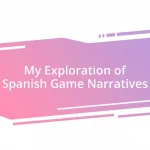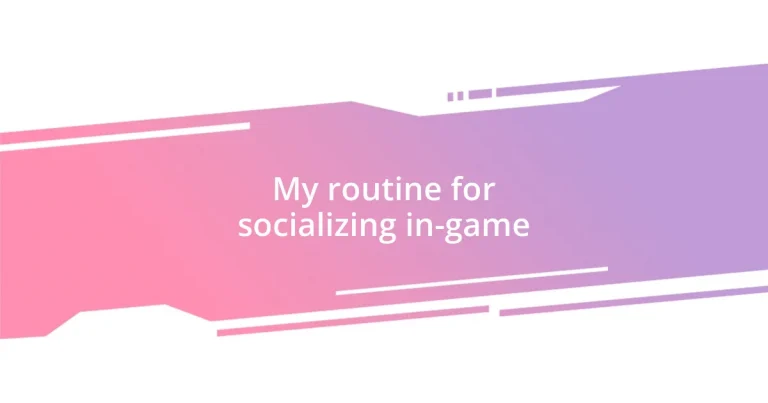Key takeaways:
- Socializing in games fosters a sense of community and belonging, leading to lasting friendships through shared experiences and teamwork.
- Identifying your preferred social style enhances gaming enjoyment and helps connect with like-minded players, whether you’re a solo player or a team strategist.
- Effective communication strategies, including active listening and humor, are essential for building strong relationships within the gaming community.
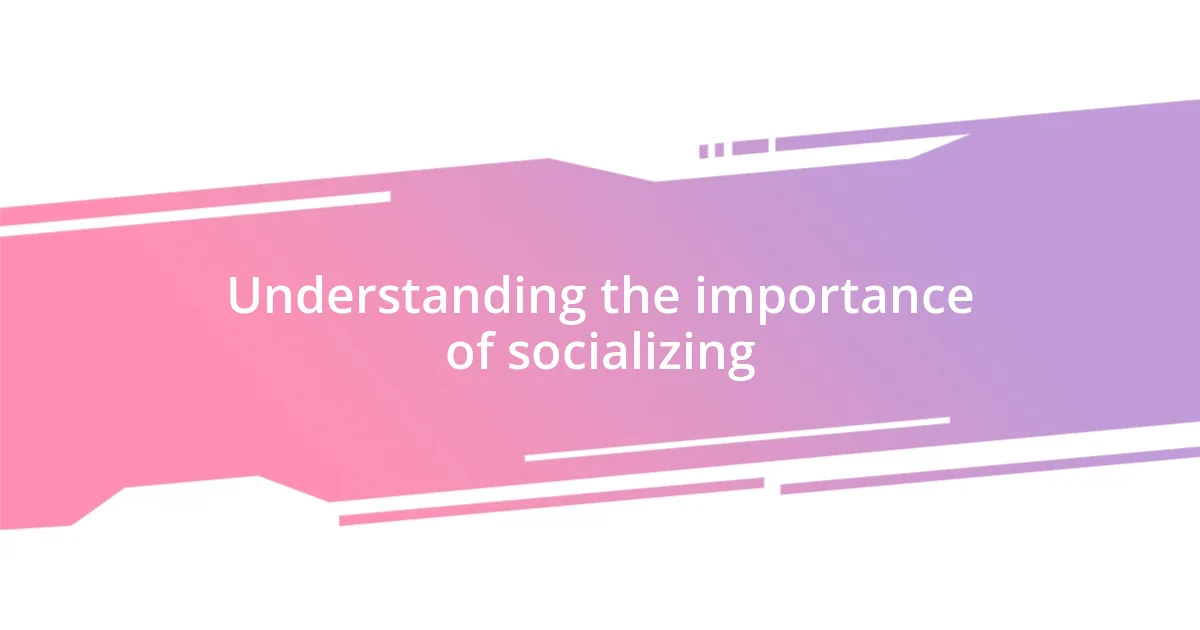
Understanding the importance of socializing
Socializing in games isn’t just about forming partnerships or completing quests together; it’s about building a community. I remember the first time I grouped up with others for a raid. The sheer excitement of strategizing with friends, even over a chat, turned what could have been a solo grind into a memorable adventure. Isn’t it fascinating how shared experiences can create bonds that extend beyond the game itself?
Engaging with other players can provide a sense of belonging that many people crave. I’ve felt that rush of camaraderie when sharing victories or even the frustrations of a defeat. Each interaction offers an opportunity to strengthen these connections, making us feel seen and valued in a virtual space. Have you ever paused to think about how those late-night gaming sessions foster friendships that can last a lifetime?
Moreover, socializing can elevate our gaming experience significantly. When I team up with friends, the laughter and light-hearted banter often enhance the gaming dynamic, making the challenges feel easier. It’s a reminder that we’re part of something larger, where collaboration can lead to not just success in the game but also joy in our interactions. Isn’t that the true essence of gaming?

Identifying your preferred social style
Identifying your preferred social style in gaming can deeply influence your experience and satisfaction. I often find that recognizing whether I lean towards being more of a solo player or a team-oriented one helps me select the right games and social interactions. For instance, during a recent multiplayer session, I realized that my preference for strategizing with a close-knit group brought out my best performance, while others thrived in a more open, chaotic setting.
- Solo players: Enjoy self-paced exploration and personal achievement.
- Social butterflies: Thrive in large groups, forging connections quickly.
- Team strategists: Prefer working closely within small groups for focused objectives.
- Friends-first gamers: Prioritize playing with friends regardless of game dynamics.
- Competitive players: Seek out challenges and rivalries with others.
Understanding where you fit can truly enhance your gaming enjoyment and help you connect with like-minded players. It’s a journey of discovering what makes your heart race, whether it’s embarking on solitary quests or celebrating victories with a squad.
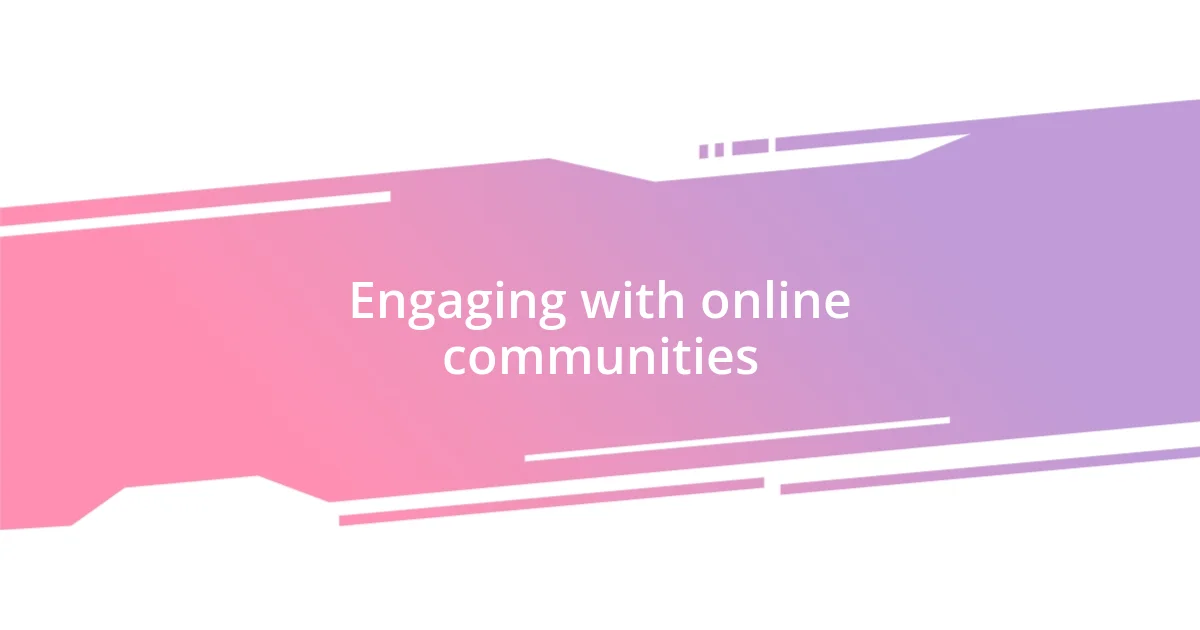
Engaging with online communities
Engaging with online communities can turn a solitary gaming experience into a vibrant social adventure. I recall joining a guild for the first time, where friendly banter and shared strategies made each session feel like a reunion rather than just gameplay. Through organized events like clan battles or casual game nights, the sense of community transformed my experience, allowing me to forge friendships that transcended the screen. Have you ever felt that spark when meeting like-minded players who share your passion?
What’s truly fascinating is how these virtual connections can lead to powerful offline friendships. In my experience, some of the closest bonds I’ve formed began with a simple message in a chat box. Those conversations evolved into real-life meetups or supportive chats about life outside gaming. It’s incredible how a shared love for a game can open the door to deeper relationships that extend well beyond pixels and quests. Have you ever thought about the lasting impact these online interactions can have on your daily life?
Moreover, embracing the culture of online gaming communities offers opportunities to learn and grow. I’ve stumbled upon new skills, tips, and even different play styles simply by being active in forums and discussion boards. From tutorials on advanced gameplay mechanics to engaging debates about game lore, these interactions enriched my gaming knowledge and helped me improve my skills. It’s a reminder that engaging with others isn’t just about socializing; it can be a gateway to becoming a better player and a more connected individual.
| Engagement Type | Example |
|---|---|
| Casual Chats | Quick conversations during gameplay |
| Organized Events | Scheduled tournaments or game nights |
| Online Forums | Discussing strategies and sharing experiences |
| Real-life Connections | Meeting gaming friends offline |
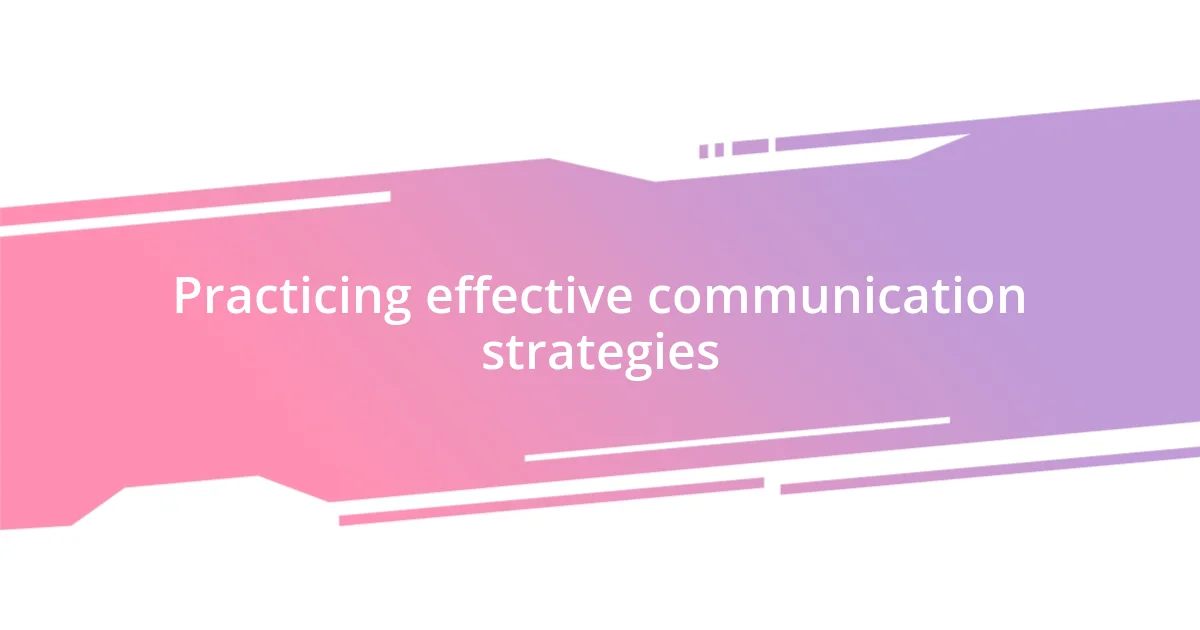
Practicing effective communication strategies
Practicing effective communication strategies in gaming is crucial for building lasting connections. I’ve often found that clarity can make or break teamwork during intense matches. For example, in a recent raid, I tried using concise callouts instead of long explanations, and it transformed our coordination; everyone responded faster, leading us to victory. Have you ever noticed the difference in your team’s performance when communication flows smoothly?
Active listening is another key component, and I’ve learned this the hard way. While in a multiplayer battle, I had a habit of jumping in with my thoughts before fully understanding others’ perspectives. One day, a teammate shared a brilliant strategy that had completely eluded me until I paused to listen. It was a moment of realization: when you listen actively, you invite collaboration and foster a more productive environment. Have you ever had a similar experience where being a good listener opened new doors?
Finally, using humor and positive reinforcement can strengthen relationships within your gaming circle. I recall joining an unfamiliar team where the atmosphere felt tense initially. By cracking a joke and encouraging my teammates during difficult moments, the mood lightened considerably. It made me think about how laughter can break down barriers and create a sense of belonging. Have you experienced how humor can bridge gaps in communication?
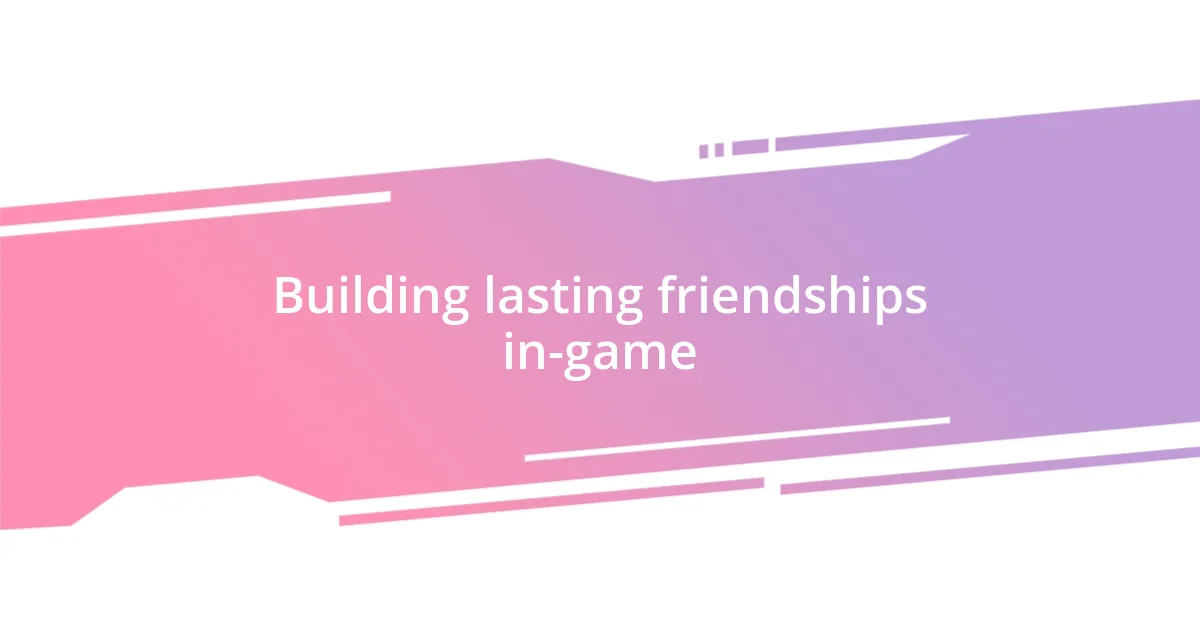
Building lasting friendships in-game
Building lasting friendships in-game often hinges on shared experiences. I remember an epic late-night raid that lasted for hours. The thrill of overcoming obstacles with my team, coupled with our spontaneous banter and laughter, forged a bond that made us more than just players; we became friends who celebrated victories together and leaned on each other during setbacks. Isn’t it amazing how a single gaming session can spark lifelong friendships?
Maintaining these connections requires ongoing engagement. I’ve found that setting up regular gaming sessions or even just checking in through messages shows that you care about the relationship. One instance that stands out is when I organized a virtual birthday celebration for a close gaming friend. The effort we put into celebrating together deepened our friendship, reminding me that it’s those little gestures that really count. Have you ever thought about how such simple actions can strengthen the ties you’ve built in-game?
The key to nurturing these friendships is genuine interest in each other’s lives. I often find myself asking my gaming buddies about their day-to-day experiences or discussing our favorite shows and hobbies outside of gaming. This practice has turned casual gaming sessions into engaging conversations and heartfelt exchanges, reinforcing our bonds. Remember, the more you invest in understanding your friends beyond the game, the more robust those connections become. Have you experienced that transformation in your own online friendships?










